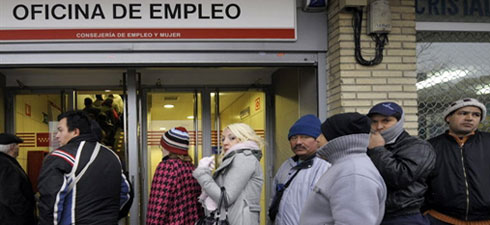Unemployment is Europe's catastrophe. Many aspects of the European economy over the past half-century have been a triumph: rising standards of living, good working conditions, high productivity and good leisure provision. It is generally a competitive economy by world standards, for it includes what was until last year the world's largest goods exporter, Germany - which is now second to China. France has, quite aside from being the world's top tourist destination, the highest productivity per hour in the world. Italy has excellence in craft industries, Scandinavia in telecommunications and so on.
So Europe is not uncompetitive. It is just not very good at creating jobs. Unemployment is high by developed world standards: the eurozone average of 10 per cent is higher than the UK, Canada, Australia, Japan, and even a little higher than the US. It has also been persistent. For example, between 1995 and 2005 the average level of unemployment in France was 10.6 per cent.
In addition, employment levels (that is, the proportion of people of working age in a job) have, with the principal exception of Scandinavia, been relatively low. One of the aims of the Lisbon Agenda, the plan started in 2000 to make the EU a more effective economy, was to increase employment levels. The results, even before the recession, have been disappointing.
It is true that the European economy did reduce unemployment during the boom years, but progress was uneven. Worse, many of the new jobs were temporary, creating a two-tier job market. Older workers were "insiders" with heavily protected job rights and very good pension benefits. Younger workers were "outsiders", many of them unable to find permanent jobs and so forced to juggle with a series of short-term or part-time contracts. While some countries have been able to use part-timers effectively - the Netherlands has done well on this account - in others many young people have been shut out of full-time employment. Read full article in the Independent...
Was this article useful? If so we are delighted!
It is freely available because we believe that the right to free and independent information is essential for democracy. But this right is not guaranteed forever, and independence comes at a cost. We need your support in order to continue publishing independent, multilingual news for all Europeans.
Discover our subscription offers and their exclusive benefits and become a member of our community now!












